Water is life, especially for our pets. As dog owners, we ensure fresh, clean drinking water is always available. But did you know dogs can drink too much water? It’s true – excessive water consumption can lead to a dangerous, even fatal condition known as water intoxication or water poisoning. But what is water intoxication in dogs?
We will discuss water intoxication, what causes it, how to spot the symptoms, and most importantly, how dog owners can prevent this scary scenario. Let’s get to hydrating responsibly!
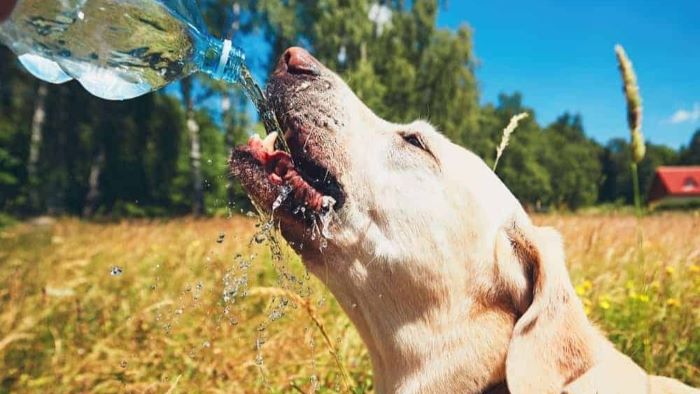
What Causes Water Intoxication in Dogs?
Water intoxication, also known as water toxicity or hyperhydration, occurs when a dog consumes excessive amounts of water. This leads to a dangerous drop in the blood’s sodium levels, a condition known as hyponatremia.
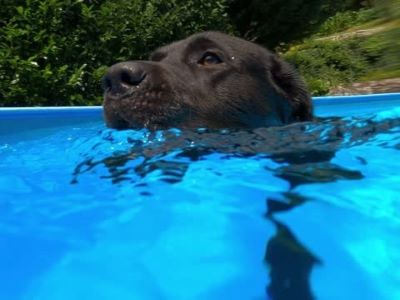
Sodium is an essential electrolyte that helps maintain fluid balance and allows nerves and muscles to function properly. When sodium drops too low, water starts to move into the cells, causing them to swell fatally. This brain is particularly vulnerable, leading to severe neurological symptoms.
This water imbalance disrupts the delicate fluid homeostasis in the body. Without prompt veterinary treatment, water intoxication can lead to seizures, coma, and even death.
What Triggers Dogs to Drink Dangerous Amounts of Water?
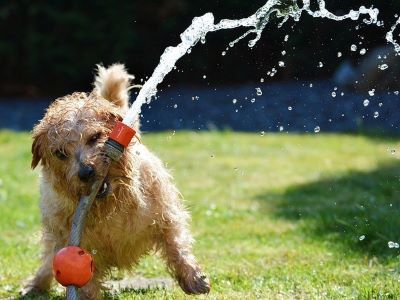
Most dogs will stop drinking when they’ve had enough to satisfy their thirst. So what motivates our pets to ingest copious amounts of water that overwhelm their systems? Here are some common culprits[1]:
Medical Conditions
Certain medical conditions can cause excessive thirst and urination, driving dogs to drink more. These include:
Diabetes insipidus – a hormone disorder causing excessive urination and thirst
Diabetes mellitus – impaired insulin function also causes increased thirst and urination
Kidney disease – dysfunctional kidneys cannot concentrate urine properly
Liver disease – abnormalities cause imbalances in sodium levels
Adrenal gland disease – hormones like aldosterone help regulate fluid levels
Medications
Some medications like steroids, antihistamines, antidepressants, and diuretics can increase thirst and urination as a side effect. Always consult your vet before starting any new medication.
Psychological Triggers
Stress, anxiety, boredom, and obsessive tendencies can motivate dogs to drink water excessively. Providing mental stimulation and a predictable routine can help minimize these behaviours.
Hot Weather
Dogs pant to cool down, losing fluids that then need to be replaced. But drinking too quickly while overheating can overwhelm the system. Always provide cool, shaded rest areas in hot weather.
Excessive Exercise
Vigorous exercise causes dogs to lose electrolyte-rich sweat and pant more. Make sure plenty of rest and moderate hydration is balanced with any intense activity.
Small Dogs
Since small dogs have less body mass, it takes less water to negatively impact their sodium blood levels. Keep an extra close eye on the toy and small breed hydration.
Free Access to Water
Free access to fresh, clean drinking water is important. But dogs who compulsively drink may need monitored access after excessive bouts.
Early Signs Your Dog is Drinking Too Much Water
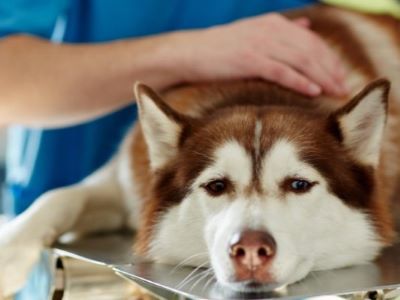
Catching water intoxication early greatly improves the prognosis. Here are some key signs your dog may be drinking excessively:
- Urinating more frequently and in larger amounts
- Seeking out and drinking water obsessively
- Restlessness, whining, or erratic behaviour
- Panting without provocative
- Vomiting and diarrhoea
- Abdominal bloating or distension
Take these early clues seriously and restrict access to water for dogs exhibiting these behaviours. Also, consult your vet to rule out underlying issues. Prompt intervention could save your dog’s life.
How Do Veterinarians Treat Water Intoxication?
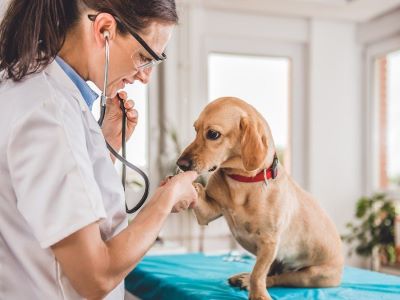
To restore fluid and electrolyte balance, vets use the following water intoxication treatments:
Intravenous fluids – Administering IV saline solutions to raise sodium levels and normalize blood values
Diuretics – Drugs like furosemide help flush excess water from the body
Steroids – Reducing brain swelling to minimize seizures and neurological damage
Anti-seizure medication – Controlling convulsions to avoid further harm
Kidney function support – Providing medication, subcutaneous fluids, and dietary changes for any renal issues
Medication adjustment – Altering or stopping any drugs causing increased thirst as a side effect
With aggressive therapy, many dogs recover fully from water intoxication if treated promptly. However, delaying care risks permanent neurological impairment or death.
6 Key Tips for Preventing Water Intoxication
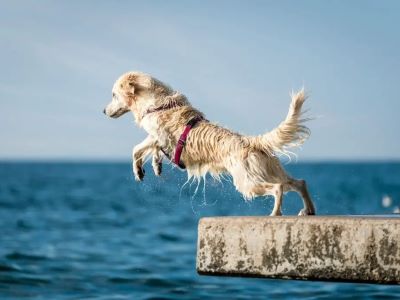
While water intoxication can’t always be avoided, the following precautions can minimize the dangers:
Provide Unlimited Fresh Water Access – Make sure your dog always has access to clean, cool drinking water. Use bowls instead of bottles to allow adequate water consumption. But also monitor for obsessive drinking.
Restrict Access After Excessive Drinking Sessions – If your dog drinks persistently for a prolonged time, restrict access for a few hours to allow the body to normalize. Then reintroduce small amounts gradually.
Offer Smaller More Frequently Water Ratios – Provide smaller amounts more often instead of large bowls left out all day. This discourages excessive guzzling.
Add Water to Food – Mixing extra water into food boosts moisture intake without the risk of consuming too much pure water alone. Broths, canned food, and kibble soaking also work.
Avoid Stress Triggers – Minimize situations causing anxiety like loud noises, separation, or introducing new pets. Stress can motivate obsessive drinking. Provide a predictable routine and safe spaces.
Train Dogs to Drink Slowly – Use treats and training to teach dogs to sip instead of gulping water in one go. Special bowls can also slow consumption. This gives the body more time to absorb and distribute the fluid properly.
Taking a proactive and vigilant stance on hydration habits greatly reduces the chances of water intoxication striking your beloved dog.
FAQs
What is water intoxication in dogs?
Water intoxication occurs when a dog consumes an excessive amount of water. This leads to a dangerous drop in the blood’s sodium levels. It is also known as water toxicity or hyperhydration.
Can water intoxication be fatal in dogs?
Yes, unfortunately, water intoxication can lead to seizures, coma, and even death in dogs if not treated promptly. Once advanced neurological symptoms like loss of coordination, dilated pupils, or loss of consciousness occur, the condition becomes life-threatening very quickly. Immediately veterinary care is vital.
How much water is too much for a dog to drink?
There is no universal limit since every dog is different based on size, health status, and circumstances. In general, fresh clean water should always be freely available. However excessive drinking is categorized as more than 100 ml per kg (2.2 lbs) of body weight per day. Check with your vet if you notice obsessive drinking habits.
What should you do if you suspect your dog has water intoxication?
Restrict all access to water immediately and contact your vet without delay. The quicker treatment can begin the better chances are for a full recovery. An injection of electrolyte-rich fluids is usually one of the first steps to stabilize blood sodium. Your vet may recommend hospitalizing your dog for close monitoring and rapid response to any worsening symptoms. Timely intervention is critical when water intoxication is caught early.
How is water intoxication treated in dogs?
Veterinarians treat water intoxication by reversing the electrolyte imbalance through intravenous fluids containing balanced sodium levels. Ongoing blood testing guides the proper dosing. Diuretics like furosemide help flush out the excess water overload. In advanced cases, steroids reduce brain swelling, anti-seizure meds control convulsions, and supportive therapy assists any kidney dysfunction. Hospitalization allows for continuous monitoring and rapid adjustments in IV fluids or medications based on sodium blood levels. With aggressive treatment, dogs can fully recover if water intoxication is caught in time.
Conclusion
Water is a dog’s best friend until it’s consumed in hazardous excess. Water intoxication is serious but also preventable. Providing unlimited fresh water access is important, but obsessive drinking behaviours should prompt limiting water intake. Catching symptoms early and seeking prompt veterinary treatment is key to protecting your dog’s health.
Address any underlying medical triggers for excessive drinking. With knowledge, vigilance, and responsible hydration habits, we can keep our precious pups safely hydrated. The life-saving powers of water must be respected, not recklessly overindulged in. When it comes to hydration for our pets we love, that moderation is key.
Reference:
- Can Dogs Drink Too Much Water? The Dangers of Water Intoxication | AKC



